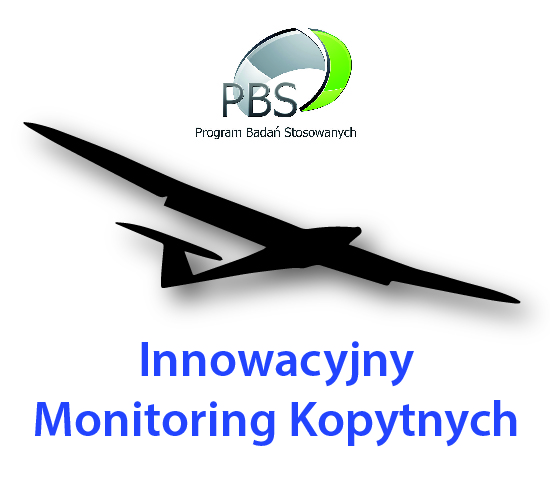A postdoctoral research assistant position in ecological modelling using GIS is now open in a research group led by Dr Małgorzata Pilot at the Museum and Institute of Zoology of the Polish Academy of Sciences. The research group studies microevolutionary processes in mammalian populations using genetic and ecological approaches. The person employed on the advertised position will be responsible for building ecological models for a project focused on evolutionary consequences of interactions among grey wolves, golden jackals and free-ranging domestic dogs across Eurasia. The position is available for three years, from July 2021. The research group is based at the Research Station of the Museum and Institute of Zoology (MIZ), Polish Academy of Sciences in Gdańsk, Poland.
Work description
This position will involve the analyses of environmental data using GIS and the modelling of the effect of environmental factors on microevolutionary processes in populations of wolves, golden jackals and free-ranging domestic dogs, as well as participation in the supervision of PhD students and contribution to administrative tasks associated with research projects. The successful applicant will be expected to contribute to grant applications submitted by the group, and will be encouraged to apply for independent funding available for early career researchers. The postdoctoral researcher will thus have the opportunity to propose and explore new research questions within the general remit of the research group.
Requirements
The candidates for this position must hold a PhD degree in biological sciences, environmental sciences or a related discipline, and experience in ecological modelling using GIS. The selected candidate should have no more than 7 years of postdoctoral experience at the start time of the employment; maternity leaves and career breaks associated with health problems are not included in this 7-year period. Candidates who do not hold a PhD degree yet, but have an established date of the PhD thesis defence/viva can be also considered. However, holding a PhD will be required at the time of the job commencement.
The ideal candidate should have the following skills:
- very good knowledge of ecological modelling using GIS;
- ability to work independently and as a part of an interdisciplinary research team;
- experience with scientific writing, evidenced by an authorship of at least one research paper as a first author (which will be evaluated in the selection process);
- fluent knowledge of English.
Desirable skills include:
- knowledge of population genetics, and in particular landscape genetics;
- experience with statistical analyses of biological or environmental data;
- knowledge of a programming/scripting language (e.g. R, Python);
- experience of working in interdisciplinary research teams.
Research environment
The research at the MIZ is focused on a broad range of themes in animal biology, including systematics, biogeography, evolutionary biology, ecology and population genetics. Małgorzata Pilot’s research group is part of the Laboratory of the Molecular and Biometric Techniques led by Prof. Wieslaw Bogdanowicz, grouping researchers focused on population genetics, phylogeography and evolutionary genomics of a broad range of animal taxa. MIZ laboratories contain modern equipment for genomic analyses, including Pacific Biosciences RSII long-read sequencer and Illumina MiSeq System. The state-of-the-art ancient DNA laboratory carries out work on mammalian palaeogenetics. The Museum’s zoological collection is among the largest and most valuable in Europe.
Employment conditions
Employment period: 36 months, subject to a 3-month probation period. Start date: 1 July 2021. The salary is funded by the Polish National Science Centre.
Documents required in the application
- Copy of a PhD certificate
- Curriculum vitae including the publication list, with the following statement provided at the end and signed:
“I agree to the processing of personal data provided in this document for realising the recruitment process pursuant to the Personal Data Protection Act of 10 May 2018 (Journal of Laws 2018, item 1000) and in agreement with Regulation (EU) 2016/679 of the European Parliament and of the Council of 27 April 2016 on the protection of natural persons with regard to the processing of personal data and on the free movement of such data, and repealing Directive 95/46/EC (General Data Protection Regulation).
I also consent to processing of my personal data by Museum and Institute of Zoology of the Polish Academy of Sciences for the purposes of any future recruitment processes..”
Applications that do not include this statement won’t be considered.
- Motivation letter (maximum one A4 page)
- A copy of one research paper to be evaluated in the recruitment process
- Contact details of two persons who can be contacted for references.
These documents should be sent to Małgorzata Pilot Ten adres pocztowy jest chroniony przed spamowaniem. Aby go zobaczyć, konieczne jest włączenie w przeglądarce obsługi JavaScript. no later than 31 March 2021. The title of the message should be “Application for a postdoctoral position in ecological modelling”. Informal inquiries can also be addressed to Małgorzata Pilot.
Shortlisted candidates will be invited for an interview, which will take place in April via Skype.
The date of the contest settlement – 30.04.2021









